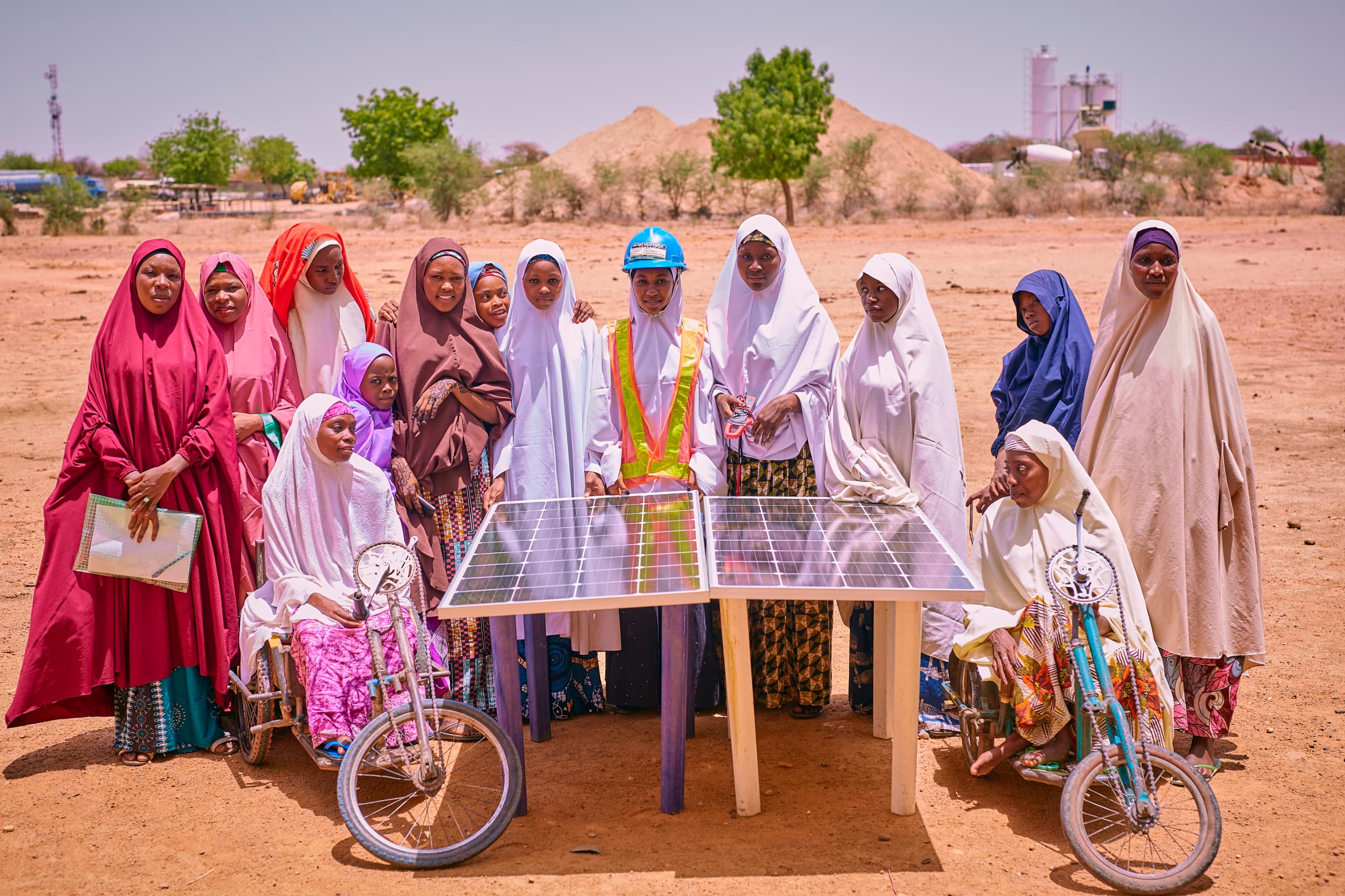Northwest Nigeria, a region rich in cultural heritage and natural resources, faces significant challenges related to unemployment, energy access, and environmental degradation.
Empowering Youth with Green Skills While Promoting Clean Energy in Northwest Nigeria
August 19, 2024

The region's reliance on traditional energy sources, combined with the effects of climate change, has exacerbated these issues. However, a solution lies in empowering the youth with green skills and promoting clean energy. By equipping young people with the knowledge and tools to engage in sustainable practices, Northwest Nigeria can not only address its energy needs but also create economic opportunities and contribute to national climate goals.
Promoting Clean Energy: A Path to Economic Empowerment
Promoting clean energy in Northwest Nigeria goes hand in hand with economic empowerment. The clean energy sector presents numerous opportunities for entrepreneurship, particularly for young people. As such, the Northwest Climate-Security Project trained 150 young people from conflict-affected areas in solar power installation as part of a long-term solution to reduce carbon emissions and reliance on traditional energy sources. This initiative, generously supported by the Government of Norway, is not only fostering clean energy transition in Northwest Nigeria but also promoting self-reliance among vulnerable communities.
Training and Equipping the Youth
The Climate-Security Project focuses on addressing the intertwined challenges of climate change and security, particularly in a region beset by conflict and instability. Recognizing the potential of renewable energy to mitigate environmental and socio-economic challenges, UNDP embarked on a mission to equip young people with the skills and tools needed for solar power installation.
The training program was comprehensive, covering both theoretical knowledge and practical skills. Participants learned about the fundamentals of solar energy, system design, installation, and maintenance. The trainees were grouped and registered as a cooperative. The program ensured that each cooperative was equipped with the necessary tools for trainees to apply their newfound skills, enabling them to contribute to their communities’ energy needs. Additionally, each participant was provided with capital to foster personal accountability.

Promoting Self-Reliance
One of the most profound impacts of this project is its contribution to self-reliance among the participants. Many of the youth trained in the program come from communities severely impacted by conflict, whereas opportunities for stable employment and economic independence are scarce. The skills and tools provided through the training program opened new avenues for income generation and entrepreneurship.
Equipped with the ability to install and maintain solar power systems, young people can now offer their services within their communities and beyond. This not only boosts their personal economic prospects but also supports local economies and fosters a sense of empowerment and resilience.
Nafisat Ahmed, one of the female participants who benefitted from the training and received tools, shared her experience: "I have always been passionate about acquiring hands-on skills that are in high demand and this assistance from UNDP came at the perfect time. I emerged as one of the top technical solar installers among my peers. I cannot wait to start helping people harness the power of the sun, beginning with my community, and I also plan to train other interested women. I want to thank the United Nations Development Programme and Murna Foundation for this opportunity. I am confident this will open doors for many women like me to become self-reliant."
Abubakar Danladi expressed his gratitude, highlighting how the intervention considered the climate-specific needs of their region:

Abubakar Danladi
“This assistance clearly shows that the United Nations Development Programme has carefully planned this initiative to help us harness the opportunities in our region. The training was comprehensive, and the tools provided were top-notch. I can assure you that we, the youth of Jibia in Katsina State, are already planning to train others and expand the knowledge we have gained. This will help address some of the challenges we face in this region, such as crime and other social issues.” - Abubakar Danladi

Looking Ahead
Empowering youth with green skills while promoting clean energy in Northwest Nigeria is a powerful strategy to address the region's economic and environmental challenges. By investing in skills training and entrepreneurship the region can unlock the potential of its youth to lead the transition to a sustainable future. This approach not only provides economic opportunities but also ensures that Northwest Nigeria contributes to national efforts to combat climate change while promoting sustainable development. The youth of Northwest Nigeria hold the key to a greener, more prosperous future—one where clean energy powers communities and green skills drive economic growth.
As the Climate-Security Project progresses, UNDP remains committed to expanding its impact. Plans are underway to train more youths and extend the reach of the project to additional conflict-affected regions. By continuing to invest in renewable energy and community empowerment, UNDP aims to create a ripple effect of positive change, contributing to a more sustainable, secure, and self-reliant Nigeria.

 Locations
Locations



